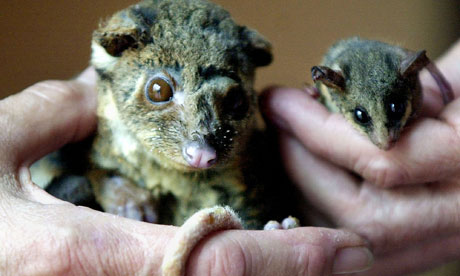 |
| Figure 1: the Mountain pygmy possums vulnerable to extinction (The Guardian 2013) |
With their natural environment being the Snowy Mountains (situated between New South Wales and Victoria States), mountain pygmy possums rely upon the insulation properties of the snow throughout their six month hibernation pattern. The projected 1C and 3C rise by 2020 and 2030 respectively will increase snow melt, thus reducing the possums’ insulation for survival.
Like most species, the possums’ hibernation patterns are synced with predation patterns; moths and mountain plums become available to feed upon after the six month hibernation is over. Disruptions to hibernation patterns result in gradual starvation and death of the possums as both moths and mountain plums are unavailable until the usual possum hibernation period is over. Mountain pygmy possums die directly or indirectly due to lack of insulation from the lack of snow as the climate warms.
Upon realising the severity of the crisis posed to possums, researchers are currently attempting to acclimatise the species to warmer climates in the lowland rainforests; a promising indicator of success is based upon their ancestors thriving within these warmer climates. However, if ascertaining this breeding colony fails, the consensus among many zoologists, palaeontologists and naturalists is that it is “guaranteed we’re going to lose this possum to climate change” (Michael Archer, researcher at University of New South Wales, Australia).
(The Guardian 2013)
By Action 21 volunteer Ellen Kane
